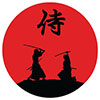
Ishikawa Kazumasa (1534–1609) was a prominent Japanese retainer who began serving Tokugawa Ieyasu during his youth. Their relationship began in 1551 when both were hostages under the Imagawa clan. Kazumasa remained a loyal companion to Ieyasu, participating in key events such as the Siege of Terabe in 1558 and the Siege of Marune in 1560. After Ieyasu broke away from the Imagawa following the latter event, Kazumasa became a trusted retainer and administrator in his service.
In 1562, during the Siege of Kaminogo Castle, Kazumasa played a crucial role as Ieyasu successfully negotiated the release of his family from Imagawa Ujizane. Acting as their guardian, Kazumasa undertook this perilous duty with great responsibility. By 1567, Tokugawa forces were divided into two major divisions. Kazumasa was appointed commander of 13 Tokugawa daimyo-vassals, while Sakai Tadatsugu oversaw 18 daimyo-vassals.
Kazumasa fought in several critical battles, including the Battle of Mikatagahara in 1573 and the Battle of Nagashino in 1575. Following Toyotomi Hideyoshi's victory over Shibata Katsuie in 1583, Ieyasu conveyed his congratulations through Kazumasa. However, under Tokugawa orders, Kazumasa and Sakakibara Yasumasa later issued statements denouncing Hideyoshi. Kazumasa served at the Tokugawa headquarters in Komaki during the Komaki-Nagakute Campaign of 1584.
In 1585, Kazumasa became increasingly disillusioned with Ieyasu's defiance of Hideyoshi. Viewing this resistance as reckless, he defected to Hideyoshi’s side. This betrayal forced Ieyasu to overhaul his military organization and defense strategies, as Kazumasa had deep insights into Tokugawa operations.
After Hideyoshi's death and the establishment of the Tokugawa Shogunate, Kazumasa and his family faced punitive measures, losing their fief. Kazumasa eventually retired and spent his remaining years with his son, Ishikawa Yasunaga, until his death in 1609.
See also
-
Yamagata Masakage
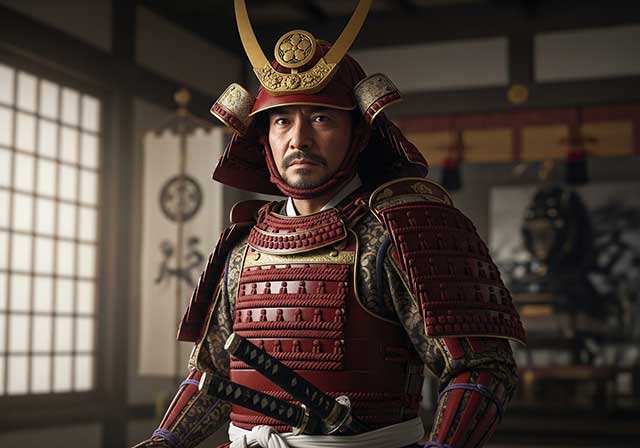
Masakage was one of Takeda Shingen’s most loyal and capable commanders. He was included in the famous list of the “Twenty-Four Generals of Takeda Shingen” and also belonged to the inner circle of four especially trusted warlords known as the Shitennō.
-
Yagyu Munenori
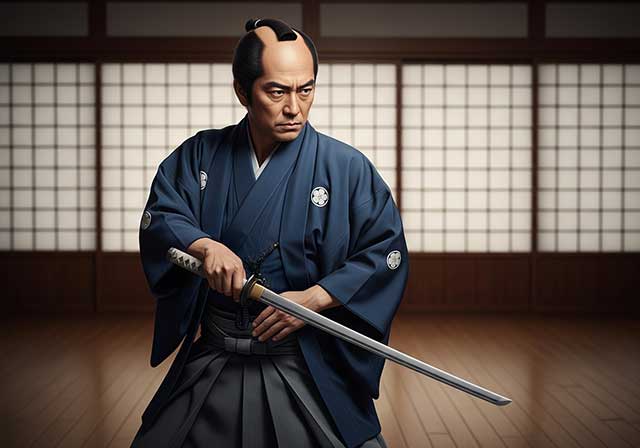
Yagyū Munenori began his service under Tokugawa Ieyasu while his father, Yagyū Muneyoshi, was still at his side. In 1600, Munenori took part in the decisive Battle of Sekigahara. As early as 1601, he was appointed a kenjutsu instructor to Tokugawa Hidetada, Ieyasu’s son, who later became the second shogun of the Tokugawa clan.
-
Yagyu Muneyoshi
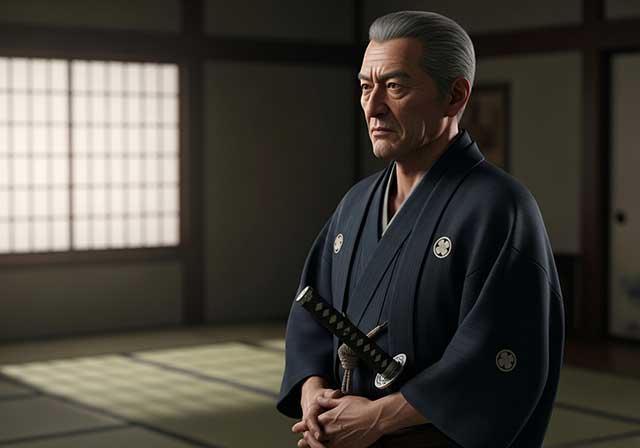
A samurai from Yamato Province, he was born into a family that had been defeated in its struggle against the Tsutsui clan. Muneyoshi first took part in battle at the age of sixteen. Due to circumstances beyond his control, he was forced to enter the service of the Tsutsui house and later served Miyoshi Tōkei. He subsequently came under the command of Matsunaga Hisahide and in time became a vassal first of Oda and later of Toyotomi.
-
Endo Naozune
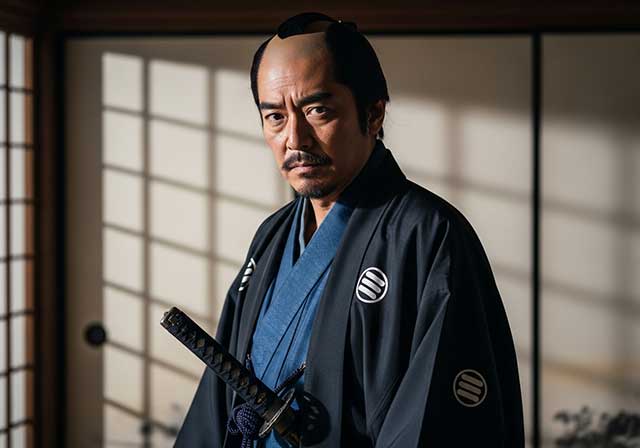
Naozune served under Azai Nagamasa and was one of the clan’s leading vassals, renowned for his bravery and determination. He accompanied Nagamasa during his first meeting with Oda Nobunaga and at that time asked for permission to kill Nobunaga, fearing him as an extremely dangerous man; however, Nagamasa did not grant this request.
-
Hosokawa Sumimoto
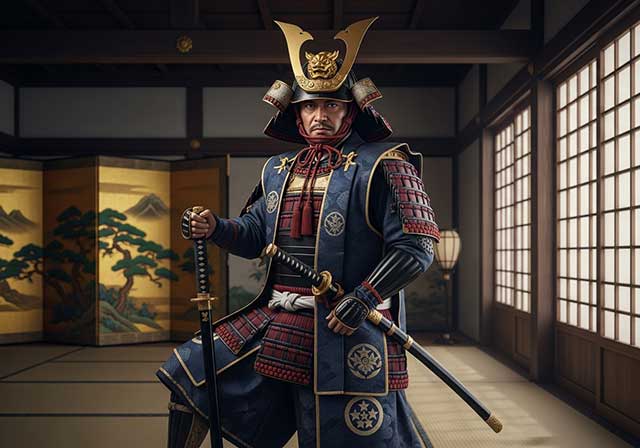
Sumimoto came from the Hosokawa clan: he was the biological son of Hosokawa Yoshiharu and at the same time the adopted son of Hosokawa Masamoto, the heir of Hosokawa Katsumoto, one of the principal instigators of the Ōnin War. Masamoto was homosexual, never married, and had no children of his own. At first he adopted Sumiyuki, a scion of the aristocratic Kujō family, but this choice provoked dissatisfaction and sharp criticism from the senior vassals of the Hosokawa house. As a result, Masamoto changed his decision and proclaimed Sumimoto as his heir, a representative of a collateral branch of the Hosokawa clan that had long been based in Awa Province on the island of Shikoku. Almost immediately after this, the boy became entangled in a complex and bitter web of political intrigue.
-
Honda Masanobu
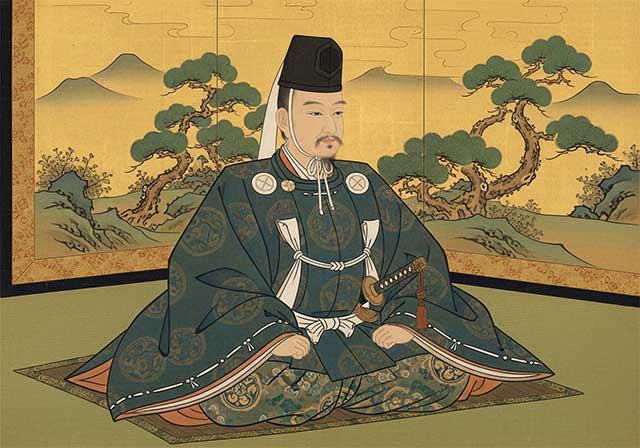
Masanobu initially belonged to the retinue of Tokugawa Ieyasu, but later entered the service of Sakai Shōgen, a daimyo and priest from Ueno. This shift automatically made him an enemy of Ieyasu, who was engaged in conflict with the Ikkō-ikki movement in Mikawa Province. After the Ikkō-ikki were defeated in 1564, Masanobu was forced to flee, but in time he returned and once again entered Ieyasu’s service. He did not gain fame as a military commander due to a wound sustained in his youth; nevertheless, over the following fifty years he consistently remained loyal to Ieyasu.
-
Honda Masazumi
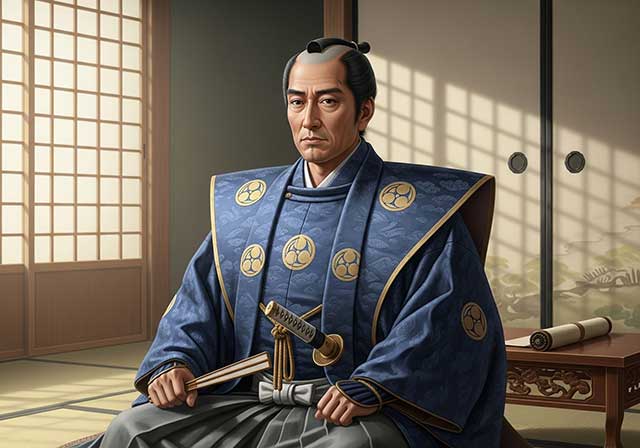
Masazumi was the eldest son of Honda Masanobu. From a young age, he served Tokugawa Ieyasu alongside his father, taking part in the affairs of the Tokugawa house and gradually gaining experience in both military and administrative matters. At the decisive Battle of Sekigahara in 1600, Masazumi was part of the core Tokugawa forces, a clear sign of the high level of trust Ieyasu placed in him. After the campaign ended, he was given a highly sensitive assignment—serving in the guard of the defeated Ishida Mitsunari, one of Tokugawa’s principal enemies—an obligation that required exceptional reliability and caution.
-
Hojo Shigetoki
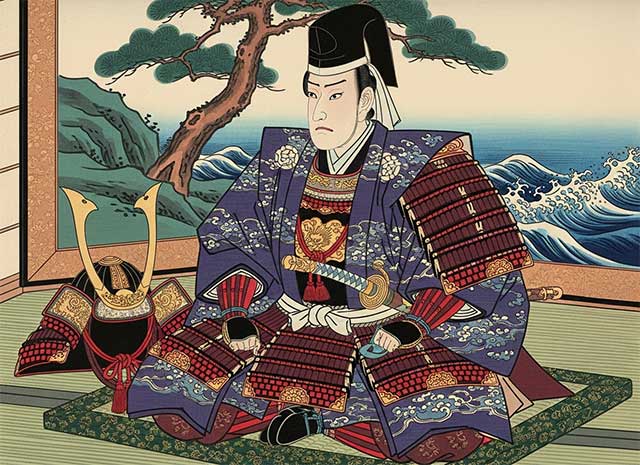
Hōjō Shigetoki, the third son of Hōjō Yoshitoki, was still very young—only five years old—when his grandfather Tokimasa became the first member of the Hōjō clan to assume the position of shogunal regent.

